the blue word to follow us
On February 27, 2024, led by Professor Duan Wanruof Department of Neurosurgery, Xuanwu Hospital of Capital Medical University (CMU), the 2023 key research and development program "Common Disease Prevention and Treatment" young scientist project - "Establishment and Promotion and application of Intelligent Spinal Deformity Diagnosis and Treatment System" project launching meeting was held in Xuanwu Hospital. The co-leaders of this project include Prof. Wang Liang from the Third Affiliated Hospital of Southern Medical University and Prof.Wang Lianlei from Qilu Hospital of Shandong University.

Director Lu Shan and Commissioner Huang Xin of the Public Health and Modern Medicine Division of the China National Center for Biotechnology Development, Deputy Director Qu Aijuan of the Science and Technology Division of Capital Medical University, Prof. Wang Yang, an expert from the Medical Research and Statistics Center of Fu Wai Hospital of the Chinese Academy of Medical Sciences, Prof. Shuai Mei of the Department of Electrical and Mechanical Engineering of the Beijing University of Aeronautics and Astronautics, President Zhao Guoguang, Deputy Secretary Tang Yi, Vice President Hao Junwei of Xuanwu Hospital of the Capital Medical University, Director Guo Xiuhai of the Science and Technology Division, as well as Dr. Zhang Hongqi, Director of Neurosurgery Department, and many other experts in the field attended the kickoff meeting.
As the project leader of "2030 Brain Science and Brain-like Research" and the president of Xuanwu Hospital of Capital Medical University, Prof. Zhao Guoguang firstly delivered a welcome speech and expressed his gratitude to all the experts and judges who came to the meeting. Focusing on how to solve the "necklace" problem in scientific and technological innovation and exploring new research paths, emphasizing the support for the transformation of scientific and technological achievements, and the young scientists project planned by Prof. Duan Wanru, he expressed his affirmation and conveyed his confidence and hoped that the project team would live up to the country's heavy responsibility and earnestly push forward the progress of the project and its transformation and application, so that it would effectively benefit the patients, and that the hospital would give full support and encouragement to the project.
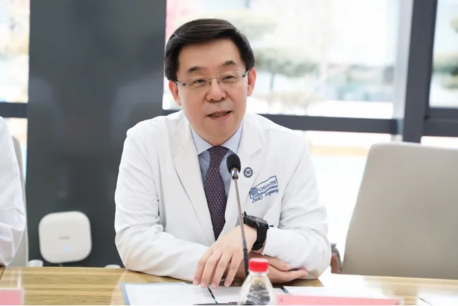
President Zhao Guoguang of Xuanwu Hospital of Capital Medical University gave the speech.
Qu Aijuan, Deputy Director of Science and Technology Department of Capital Medical University, expressed her gratitude to the experts for their guidance and congratulated the approval of the project. Emphasizing the important position and efforts of Xuanwu Hospital in the transformation of scientific and technological achievements as well as responding to the major national needs, she especially put forward the necessity of deepening the integration of industry, academia and research and improving the development of hospitals and disciplines, and pointed out the importance of the cultivation of young scientists, hoping that the project team would invest in the launch and implementation of the project with a higher-quality talent echelon and deployment of resources.
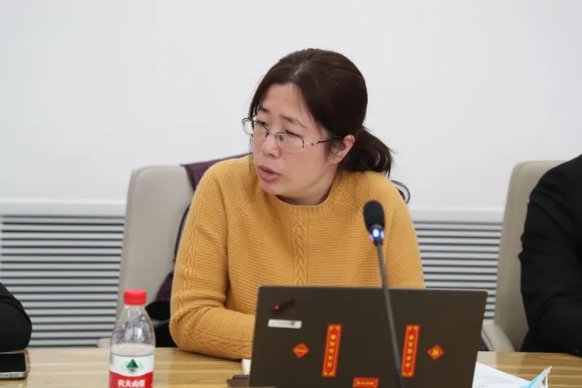
Qu Aijuan, Deputy Director of Science and Technology Department of Capital Medical University, gave the speech.
Lu Shan, Director of China National Center for Biotechnology Development (CNCBD), emphasized the great importance of the brain science project and the Young Scientists project. Director Lu raised the confusion in clinical diagnosis and treatment and scientific research, that is, despite the many scientific breakthroughs in disease research, the transformation and application still faces great challenges and controversies. She further discussed the importance of informatization and big data modeling for research, and pointed out the high expectation of the Young Scientist project in terms of innovativeness, hoping that the key projects and the Young Scientist project can work together to solve the diagnosis and treatment puzzles of the common diseases under the same kind of diseases.
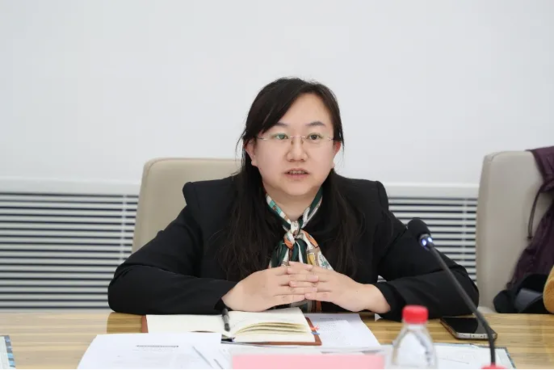
Lu Shan, Director of China National Center for Biotechnology Development (CNCBD), gave the speech
Project presentation and discussion session
Later, it's the project report and discussion session of the launch meeting. As the moderator of the meeting, Guo Xiuhai, Director of Research Department of Xuanwu Hospital of Capital Medical University, introduced Dr. Duan Wanru and her team, pointing out Dr. Duan's continuous efforts in clinical work and scientific research in the field of spine and spinal cord.
As the project leader, Prof. Duan Wanru from Department of Neurosurgery, Xuanwu Hospital, Capital Medical University, firstly introduced the overall situation of the project "Establishment and Promotion and Application of Intelligent Spinal Deformity Diagnostic and Treatment System", including the project background, the research structure and the overall idea, the project organization and deployment, and the allocation of funds. Subsequently, Prof. Wang Lianlei of Qilu Hospital of Shandong University, Prof. Duan Wanru of Neurosurgery Department of Xuanwu Hospital of Capital Medical University and Prof. Wang Liang of the Third Affiliated Hospital of the Southern Medical University gave a detailed introduction of the tasks undertaken by their respective centers, including the framework of the research, the technical route, the foundation of the previous period, the assessment indexes, and the points of innovation, etc. In general, the construction of intelligent diagnosis and treatment system in spinal deformity is shown to be a major demand and future research plan, with emphasis on the prospect and value of the project in the transformation of results and application in clinical practice.

Prof. Duan Wanru from Xuanwu Hospital of Capital Medical University introduced the project.
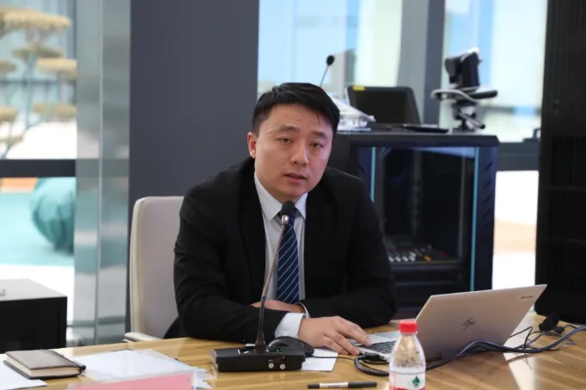
Prof. Wang Lianlei from Qilu Hospital of Shandong University introduced the project.
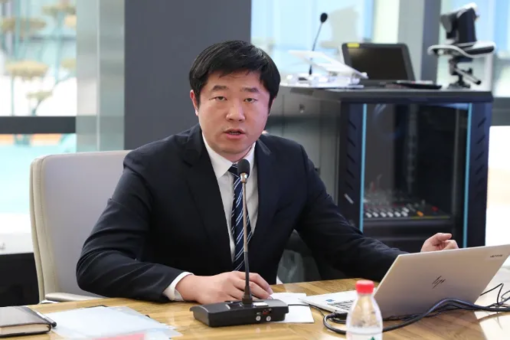
Prof. Wang Liang from the Third Affiliated Hospital of Southern Medical University presented the project.
In the expert review and free discussion session after the project, the guiding experts affirmed the project implementation plan, and fully discussed and provided detailed guidance on the details of the project design and implementation. Prof. Kan Fengzeng of Neurosurgery Department, Xuanwu Hospital, Capital Medical University, provided further suggestions from the perspective of disease classification; Prof. Mei Shuai of the Department of Electrical and Mechanical Engineering, Beijing University of Aeronautics and Astronautics, provided sufficient guidance on the development of intelligent devices; Prof. Yang Wang of Fuwai Hospital, Chinese Academy of Medical Sciences, provided suggestions for improvement of the evidence-based research program; and Aijuan Qu, deputy director of Capital Medical University, and Xuanwu Hospital of Capital Medical University, and Xiuhai Guo, director of Capital Medical University, highlighted the importance of project management and talent training. Finally, Director Lu Shan of China National Center for Biotechnology Development (CNCBD) provided valuable experience in refining the assessment indexes and setting reasonable project nodes.
Finally, Mr.Zhao Guoguang, Director of Xuanwu Hospital of Capital Medical University, summarized the project and delivered a speech, fully affirming the intention and design of the project. He emphasized the application of the concept of treatment of future diseases and the continuity of surgery and rehabilitation. He also emphasized the need to actively promote the progress of the project, give full play to the advantages of the project's cooperation units, optimize the research program for the disease early, efficiently complete the assessment indicators, realize the intelligent promotion of spinal deformity diagnostic and treatment technology, form the results of scientific and technological transformation, and provide professional support for the strategic layout of the country's common and frequent diseases, as well as provide more accurate and effective diagnosis and treatment for the vast number of patients with spinal deformity.
Project Leader
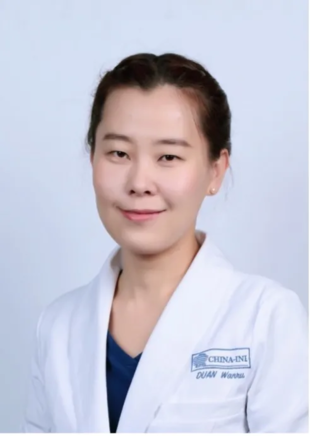
Duan Wanru, M.D. PhD., Consultant Neurosurgeon of Department of Neurosurgery, Xuanwu Hospital, Associate Professor, and Master's Supervisor. She specializes in minimally invasive spinal cord surgery. She also hosts the Spinal Cord Injury and Functional Reconstruction Laboratory of the International Neuroscience Institute of China, and serves as PI of the Key Laboratory of Spinal Deformity Research and Application of Big Data of the Chinese Academy of Medical Sciences; and has been responsible for the teaching and training of the Neuro-Spine Center for a long period of time. She has published more than thirty papers as first author and corresponding author. She is the chair of the Young Scientist Program of Key Research and Development Program of the Ministry of Science and Technology, the National Natural Science Foundation of China, the North Nature-Haidian Joint Fund, and the "Capital Clinical Characteristics" Program of Beijing Municipal Science and Technology Commission. She was selected as one of the young talents of Beijing Medical Bureau.
Her social positions include China Volunteer Doctors, Standing Committee and Secretary General of Neurosurgery Specialized Committee of China Association of Women Physicians, Vice Chairman of the First Artificial Intelligence Rehabilitation Specialized Committee of China Association of Rehabilitation of the Handicapped, etc. She has also served as a Young Lecturer of AO Spine, and as a member of the editorial board of Human Brain Magazine. He was awarded the Third Prize of the Second China Healthy Longevity Innovation Competition, the Outstanding Prize of Young Physicians' Surgical Showcase at the Beijing Medical Association Neurosurgery Academic Annual Meeting, and the Sixth National Famous Physicians' Young Rising Stars.
Any use of this site constitutes your agreement to the Terms and Conditions and Privacy Policy linked below.
A single copy of these materials may be reprinted for noncommercial personal use only. "China-INI," "chinaini.org" are trademarks of China International Neuroscience Institute.
© 2008-2021 China International Neuroscience Institute (China-INI). All rights reserved.